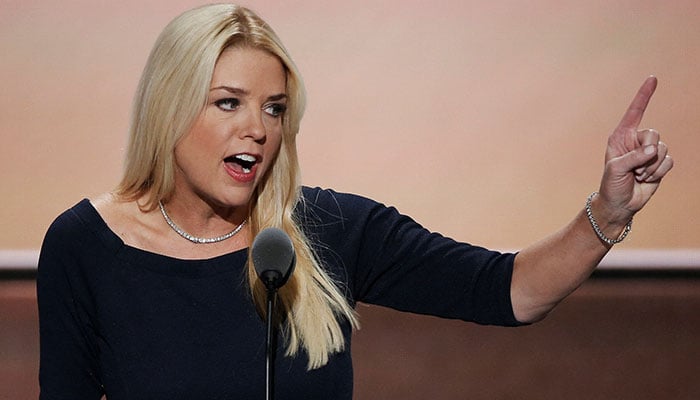

UN Secretary-General Antonio Guterres warned member states Tuesday about Lebanon “becoming another Gaza” amid escalating tensions with Israel.
Highlighting the "epic transformation" that the world is facing, Guterres addressed member states during the opening of the 79th UN General Assembly at New York headquarters.
"Our world is in a whirlwind. We are in an era of epic transformation -- facing challenges unlike any we have ever seen -- challenges that demand global solutions," said Guterres, adding that "geo-political divisions keep deepening."
Drawing attention to global warming, the UN chief said that "wars rage with no clue how they will end."
He underscored the threat of nuclear posturing and "new weapons cast a dark shadow."
"We are edging towards the unimaginable, a powder keg that risks engulfing the world," he said.
Guterres grounded his speech in two key realities: that the current global state of affairs is "unsustainable" and the challenges facing the world are "solvable."
"The level of impunity in the world is politically indefensible and morally intolerable," he stressed, lamenting that many governments feel entitled to disregard international laws, human rights conventions and UN resolutions.
"They can invade another country, lay waste to whole societies, or utterly disregard the welfare of their own people. And nothing will happen," he said, noting that the "impunity" can be seen in the Middle East, Europe, Africa and beyond.
On the Middle East, Guterres observed that "Gaza is a non-stop nightmare that threatens to take the entire region with it. Look no further than Lebanon."
Saying all states should be "alarmed by the escalation" between Lebanon and Israel, he said. "Lebanon is at the brink."
"The people of Lebanon, the people of Israel, and the people of the world cannot afford Lebanon to become another Gaza," he said.
He denounced the collective punishment of Palestinians, reiterating his demand for an immediate cease-fire and the start of a two-state solution.
"The speed and scale of the killing and destruction in Gaza are unlike anything in my years as secretary-general. More than 200 of our own staff have been killed, many with their families," he said.
Guterres contrasted the current global disorder with the more structured tensions of the Cold War era.
"For all its perils, the Cold War had rules. There were hotlines, red lines, and guardrails," he said, but now, the world is in a "purgatory of polarity" with many countries acting unaccountably in the absence of a stable world order.
'Fragmentation is inevitable' without UN reform
Guterres highlighted global inequality and the urgency of reforming institutions like the UN Security Council and the financial system.
"The United Nations Security Council was designed by the victors of the Second World War. Most of Africa was still under colonial domination," he said, noting that Africa still has no permanent seat.
He stated that "those with political and economic power, and those who believe they have power, are always reluctant to change."
Guterres warned that "without reform, fragmentation is inevitable, and global institutions will become less legitimate, less credible, and less effective."
He pointed to the dual existential threats of climate change and artificial intelligence (AI).
"We are in a climate meltdown," he said, stressing that the poorest are hardest-hit.
Warning about the risk of AI creating global divisions, if not managed properly, Guterres said: "The rapid rise of new technologies poses another unpredictable existential risk."
"The people of the world are looking to us," he said, urging nations to pursue justice, accountability and reform to steer the world toward a more sustainable future.
UN General Assembly President Philemon Yang said the general debate is "one of the world’s most inclusive, representative, and authoritative platforms" and "the urgency of our task cannot be overstated."
Yang emphasized that progress on the Sustainable Development Goals is far behind, the climate crisis is no longer a distant threat and conflicts stretch from the Middle East to Ukraine, from Haiti to Sudan.
Underscoring the situation in Gaza, Yang called on all parties to adhere to international law.
"Indeed, only a two-state solution can end the cycle of violence and instability, ensuring peace, security, and dignity for both Palestinians and Israelis," he said.
He noted the urgent need to reform the international financial architecture, while also pointing out the widening digital divide.
"We are not mere spectators to these crises, nor are we powerless to act," Yang added.











